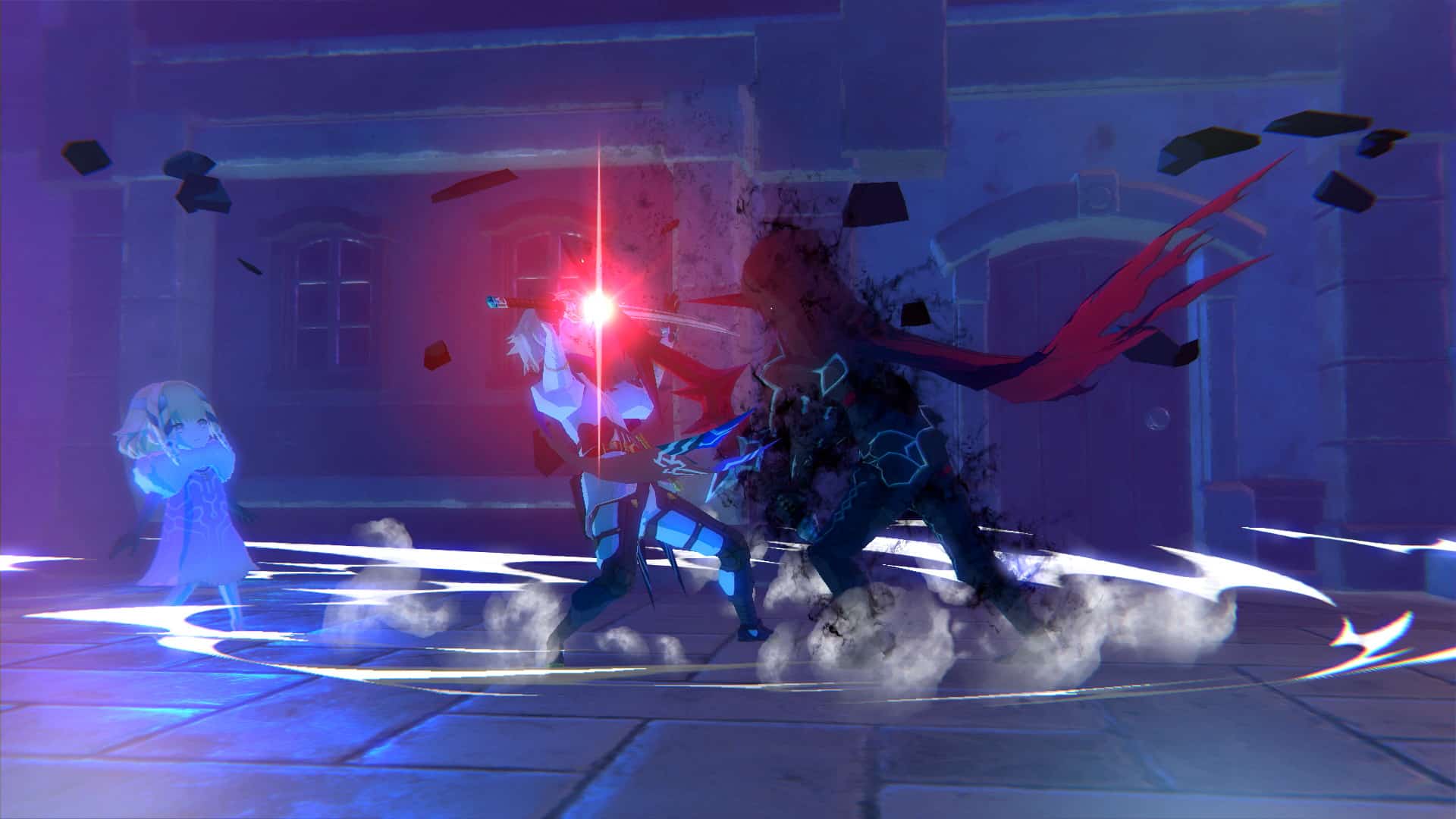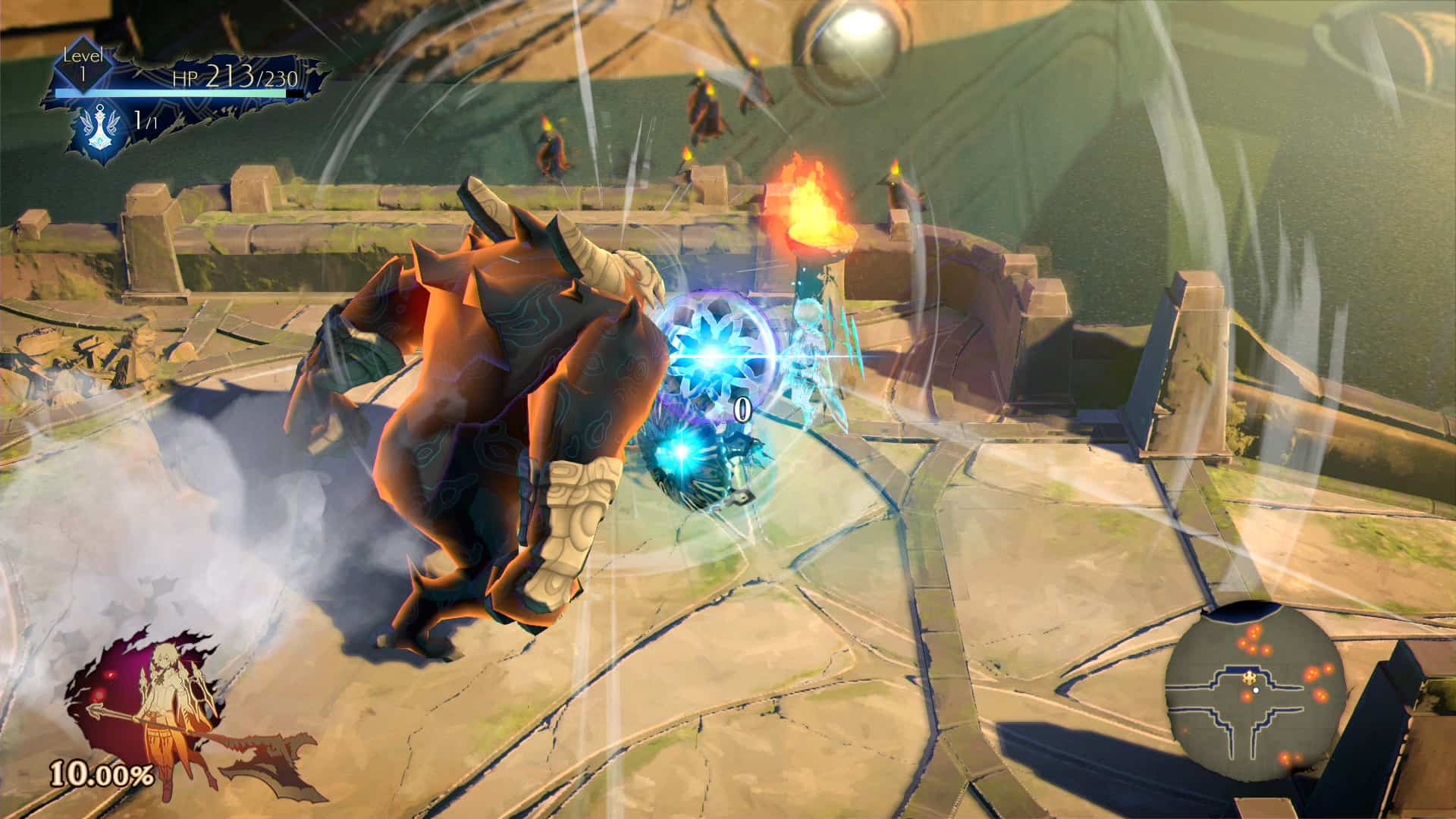Published by Square Enix and developed by Tokyo RPG Factory, Oninaki is a hack and slash, action RPG where players take control of Kagachi, a young Watcher, who upholds the principles of reincarnation. People are forbidden to mourn the loss of their loved ones, as it is believed that grief fills the dead with regret and may cause them to lose their way. If souls do become lost, they cannot be reborn and will instead become monsters. As a Watcher, Kagachi has the role of a keeper for both the living world and the beyond. Watchers can transition between both worlds to battle against these monsters and save any lost souls to send them onto their next life.
The game’s story can be unsettling, confronting and somewhat disturbing in atmosphere. After someone has passed away, Kagachi must lead their soul to reincarnation rather than allow them to linger around in the spirit world. Naturally, people aren’t willing to let go of their deceased loved ones and this leads to players having to execute those still living, so their souls can be at peace. As more of the story unfolds, players will meet characters who cannot handle loss and are very willing to accept death themselves to be reunited with their family, friends and spouses.

With upfront themes of suicide, it maybe a game you might want to reflect upon before beginning. Players will also encounter suicide cults, deeply religious people and other characters with twisted views who are offering to help others take their own lives and send them into the world beyond life. The game’s tone of everyone’s true happiness seemingly lying in dying, can feel very dark and depressing. This will either appeal to some players while others may feel uncomfortable as they progress through.
Aside from the story, the game’s main appeal is its gameplay which overall, can be hit or miss, at times. Enemies will come in all shapes and sizes, who oddly enough take on the form of penguins, seals, moose and other animals. Daemons are the lost souls who have no memories of their past lives and couldn’t be reincarnated, damned or banished. Kagachi, along with the Daemons, can attack using various weapons and powers he acquires along his journey. Each Daemon have their own unique weapon and powers and can bond with a Watcher, allowing them use of their arsenal.
Players can have up to four Daemons at a time and can switch between them at various checkpoints, which also heals Kagachi back to full health. Battling the smaller common monsters can feel repetitive and tedious after awhile but the larger bosses are more fun and exhilarating, forcing players to strategise instead of attacking them head on.

There may be times the combat feels unrefined, and attacks missing the enemies happens a little too often during the heat of battle. The customization system offers a lot of options and possibilities for Kagachi and the Daemons, to suit the player’s preferred style.
The cell shaded graphics look very clean and crisp and certainly fit well with the game’s style and personality. Switching between the living world and the afterlife at the press of a button is a very interesting concept, allowing players to achieve certain tasks and uncover mysteries. The music may feel somewhat bland for the most part, but really picks up during the more intense and exciting scenes, as well as the boss fights, which have a very upbeat medieval/fantasy tune. This is a nice contrast to the game’s dark, bleak and heavy themes.
Although Square Enix and Tokyo RPG Factory have better alternative games of the same genre in their libraries, Oninaki is truly a unique game that isn’t afraid to tackle the heavy and unsettling scenarios that will challenge a player’s morals. It’s bright and alternatively dark environments are a pleasure to witness, even in a world where death seems to bring more happiness than life.

The Good
- Gorgeous cel shaded graphics
- Fun and challenging boss battles
- Wide variety of weapons and powers
The Bad
- The story of death over life can feel unsettling and depressing
- Combat feels unrefined at times
- Cutscenes can be very dialogue heavy








